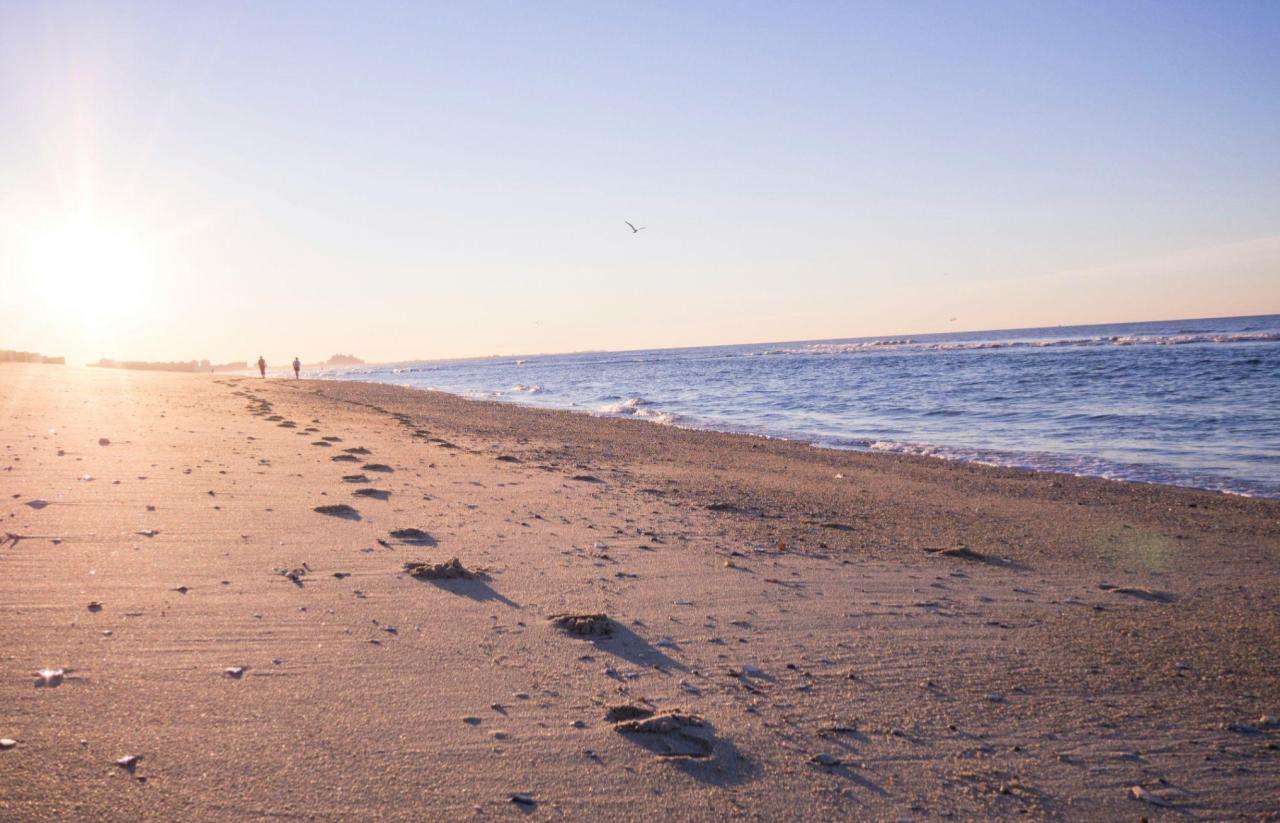Podcast: Play in new window | Download (Duration: 23:04 — 18.7MB)
Subscribe and don't miss an episode! Apple Podcasts | Spotify | Android | iHeartRadio | Deezer | RSS
In this episode of Navigating Nourishment Podcast, Wendy and Debbie discuss the importance of doing Just One Habit: small, consistent actions for significant life improvements. They emphasize that people often fail to achieve their goals due to unrealistic expectations and the “say-do gap.” They share several real-life examples of their own habits and their clients. These habits, when practiced regularly, can lead to substantial long-term benefits. They stress accountability and the use of tools like apps to help maintain these new habits.
23 minutes
Transcription (edited for readability)
Small, Consistent Steps for Lasting Change
Wendy 00:00
So many of our clients come to us and say, I want increased energy, clear thinking, to get back to my ideal body weight. These are some of the things people come to see us for. And one of the questions we always ask people is, how long did it take you to get where you are? Say you’re 60 years old and you’re 10 pounds different than you were when you were 50, or you can’t run a mile at the same pace that you used to 10 years ago. Today, we’re going to talk about small, little-mini-wins done consecutive over time, yielding the results that you’re really looking for
Debbie 00:44
You’re going to walk away from this podcast with something that’s really going to change your life. That’s our goal, at least
The “Say-Do Gap” and the Importance of Small Actions
Wendy 00:53
That’s right, and we want to be realistic about expectations and time. I think time gets away from us so quickly, and we have these great intentions for ourselves, and we think about it all the time, but we’re not doing anything. There’s this say-do gap that we see that we want to shine a light on. We’re here to give you some really easy, doable ideas.
Debbie 01:24
It’s like, we have these intentions about things, and time flies away from us, and here we are at the very end of summer, just like that! (snap) I know I had many intentions of things I wanted to do this summer that didn’t happen and that’s just an example of a couple months. But think about the years, the things that you intended to do for years now that you didn’t do.
Wendy 01:53
There’s a ‘static’ about that – when we want to do something and we still don’t do it. Dana and I say this all the time: It’s like ‘death by paper cuts,’ which is kind of this morbid idea, but it’s these little things that we promise ourselves that then don’t happen. That gap of promise causes us suffering. We want to shine a light on that and say you don’t have to change everything in your life all at once overnight! We know with 17 plus years of coaching that that does not work.
Debbie 02:34
All or nothing doesn’t work.
Wendy 02:39
It’s proven time and time again. The marketing in this industry is sexy about these ideas of quick change. And we want to bring people back to the basics.
And if this is the first time you’re hearing us, my name is Wendy.
Debbie 03:05
and I’m Debbie, and we’re Navigating Nourishment. So let’s talk about baby steps.
Baby Steps and Compounding Effects
Wendy 03:14
When we think of baby steps, sometimes we think we’re not getting anywhere, but the compounding baby steps really takes us on long, long walks – one step at a time. And if we could strap on a little bit of curiosity and patience with ourselves, the baby steps really add up. So we have a bunch of ideas to share with you today,
Debbie 03:43
We do. And here’s the takeaway, we’re going to share a bunch of ideas. We’re asking you to choose one, just one, because it’s almost impossible to not do one thing. And these one things are not big. We’re talking about doing a very small, one thing that’ll change your life after compounding it over and over and over and over and over….
Wendy 04:12
Here’s a visual example that, before we turned on the podcast, that you talked about was the Grand Canyon.
Debbie 04:20
It happened drip by drip by drip.
We have a bunch of examples of compounding. There’s famous ideas about saving a penny a day. And we don’t have the kind of time that the Grand Canyon had.
Wendy 04:40
No we don’t, but one of the things we do talk with our clients about is: How many summers do we have left? If we reverse engineer that idea, it might speed up our intensity of doing these mini things. Not intensity, but dedication to doing these many small things. And how truly important they are to our overall well being.
Debbie 05:03
So let’s give some examples of baby steps. We want to challenge you to choose one.
Just One Thing for Daily Hydration and Movement
Wendy 05:11
Let’s start with something that we all know we need more of. Well, most of us, anyway, need to start out our day with hydration, we need to drink water.
Debbie 05:24
If you’re not starting your day first thing in the morning with water, this is the one baby step you can do: drink a glass of water every morning.
Wendy 05:38
Pretty simple. It’s something that’s doable, it’s something that’s easy, it’s something that can clearly be a habit. I wake up, I go to the kitchen, I have a glass of water. Just one habit.
Debbie 05:50
And it doesn’t necessarily matter if it’s eight ounces or six ounces, start with whatever glass you want, and start drinking one glass every morning. And after doing this a while, perhaps you’ll see your skin looking a little bit better, your energy maybe getting a little bit better over time. Maybe digestion will improve. Who knows? There are many, many things that happen when we become hydrated.
Wendy 06:17
The next one we wanted to offer up as an idea is a daily movement intention, and this could happen any time of day, but it’s picking one thing that you’ll do, one, just, just one piece of movement. Maybe it’s a 10 minute walk or one push-up every day or doing a 20 second plank – some form of movement of any kind is helpful. We want to hook it to a habit, and it needs a time stamp, and it needs something that you can clearly know that you’ve done. So what one thing could you do every single day in the way of movement that could, over time, improve your cardiovascular health.
Debbie 07:23
And if you’re someone who works out regularly and does activity every day, your movement is in a place that you like, maybe there’s just one thing you can add that you haven’t done yet. Or perhaps you choose another one of our habits. Not everybody’s going to want to necessarily do all these things, and we’re only saying to choose one. Hopefully one of these things resonates with you as something that you really could use. So if movement’s not your thing, we have a few other examples.
Just One Habit for Mindful Eating and Gratitude Practice
Wendy 07:58
I really like this next one about mindful eating. This is something I need to continue to work on. I often eat too fast. YI don’t have any story behind it, except it is kind of a habit. I’m just not conscious enough about it. It’s not something that I’m practicing. So before I eat, if I could remember to chew more with intention. Maybe it’s putting my fork down after every bite.
Debbie 08:30
It could be that you choose three minutes during one of your meals eating with chopsticks, or it could be that you actually sit down with nothing, nothing to read or watch, sitting there purposely without anything else to do but eat. Having a whole meal like that when you’re not doing that is too much to ask, so maybe it’s for three minutes or five minutes, but every day, sitting at one meal for five minutes without any other distraction, except for your food, your meal.
So if mindful eating is your one habit you need to work on, that’s definitely something you can do as a practice pretty easily. Just choosing what would make you mindful for a few minutes, if you’re not mindful at all, we often don’t have mindful eating because we often eat familiar foods every day. You know, a lot of us have similar foods most days, and so it makes it an easy way to be mindless because it’s nothing new. Whenever you eat something new or different, you’re often mindful. And that might be too big of a thing to say, eat something new and different every day. So the practice has to be, eat something that you’re used to eating, but do it mindfully, so choose your way of doing that just for a few minutes.
Wendy 09:46
And the compound effect of this is that you could become more aware of your satiety – how full am I? Your digestion might improve because you’re chewing more. And maybe you’ll actually enjoy that peanut butter and jelly sandwich a little bit more. Joy in food is really important. We kind of get away from that when we have the same foods, but if we are connected with the food a little bit more, we might have some more joy in the food.
Just One Habit for Sleep Routine, Gratitude, and Stretching
Debbie 10:20
If sleep seems to be something you struggle with, one habit you could choose is to get to bed earlier. If you have a habit around sleep that’s not nourishing, you can start with something small. Maybe it’s going to bed 15 minutes earlier. If you’re struggling to get to bed a little bit earlier and you go to bed at midnight. And you say you really wish you could go to bed at 10:30 an hour and a half is a huge ask for someone who’s not used to doing that. So maybe it’s going to bed at 11:45 instead and making it a conscious decision to go to bed 15 minutes earlier than you usually do.
Wendy 11:07
I really like that example, Debbie, because it is a perfect example of overshooting your expectation for yourself. We’re trying to get these ideas so they are so doable we can’t fail at them. And so if it’s five or 10 or 15 minutes over time, our sleep quality is better and so is our mental clarity. And when our sleep improves, we literally repair our body overnight.
Debbie 11:40
Amazing things happen when you up your game in sleep, for sure.
(Sleep blog you might be interesting in reading: Doggone Tired)
Wendy 11:47
This next idea is about gratitude. It’s such an interesting practice, because a lot of people complain! They complain about the weather. They complain about – or I complain about traffic! And when we catch ourselves in that moment of complaining and swap it to oh my gosh, I look outside and it’s absolutely a glorious, sunny summer day! And like all the others, the gratitude practice needs to be hooked to first thing in the morning or right before you go to bed. Or maybe it’s gratitude for the meal. Maybe every day at lunch, you give a gratitude for where your meal came from.
Debbie 12:39
Or it could just simply be when you get into your car. Whatever the trigger is, it’s reminding yourself, okay, what’s one thing I can be grateful for? Just one thing. If you say one thing every day, it might seem trivial and minimal and cliche and all that other stuff, but that is one step closer to having a more positive mindset. There’s so many studies about how people who have positive mindsets have less stress. And we’re not talking about disgustingly positive, Pollyanna stuff. We’re talking about just being more positive in general, even just a smidgen can make our stress less. Gratitude helps enhance everything in our lives. So just one little teeny thing to be grateful about each day, just one thing.
Okay, here’s one that I’m going to start. I’m going to keep track by putting up a calendar in a place where I can just check it off. Because how many calendars do I get in the mail? I’m going to use one of them just to check off the habit of stretching. I need to stretch more, and I need to do it more regularly. So whatever your choice, spending a minute, or doing just one kind of a stretch, but choose something about stretching, whether it’s the morning, whether it’s night, whether it’s the middle of the day, doesn’t matter. Just stretch in some way every day. Just one habit.
Wendy 14:20
I’m hooking this in my own mind when I make my coffee. Instead of doing something else while I’m waiting for the water to get hot, that’s when I’ll do my stretching.
Debbie 14:37
That’s a great idea. You know what stretching does, too? It prevents injury and that’s a scary thing as we get older, because some injuries we don’t heal from as quickly. So if you can prevent them by being more flexible, by doing one little stretch a day, it’s worth it.
Just One Thing for: Digital Detox and Breath Work
Wendy 14:57
Perfect. I love it. I. Like this other one, too, and it’s just so prolific these days. It’s about doing a digital detox. It’s simply reducing our screen time, whether it’s computer time, television, smartphone time, iPad, news. One thing that I know worked really well for me was to turn off my notifications.
As I’m speaking about this, I want to talk through something. I have my phone with me during workouts because I use it as a timer for resting during weightlifting. I often find myself scrolling between my lifting sets. That is a sneaky habit that got into my life that I could let go. I’m gonna have to think through that one a little bit more to make it doable for myself, because I still need a timer.
Make it so tiny that it’s doable. I’m not going to look at my social media past nine o’clock. One of our clients actually does that. She doesn’t look at her phone until a certain time in the morning, and she doesn’t look again after a certain time, and it’s improved her sleep, her mindset or and her atension span. Really amazing shift for her.
Debbie 16:31
You know what I did last night? And this happened the week before too. I have a weekly, evening tennis match, and I’m often in a rush, because it’s right around dinner time. And last week, I forgot my phone. And after our tennis match, we usually hang out afterwards and socialize for an hour or so.
So when I get to the tennis court, I realize I don’t have my phone and it happened again last night. I had just come back from a trip and wanted to share pictures. But because I didn’t have my phone, I talked about it more and explained it more. Instead of passing around my phone for people to look at things and not really listen to what I was saying, I was telling stories instead, which is kind of what we used to do before we had these things. It was actually really beautiful.
And I thought, You know what, next week, I’m not going to bring my phone. I’m just purposely not going to bring it, because I can live without my phone while I’m playing tennis and for an hour afterwards. For me, that’s not a big deal. So that’s one of my things that I’m going to continue to do.
Wendy 17:40
The next one we wanted to talk about is getting connected with our breath. And there are so many different ways. One idea for me was pretty profound – learning how important it is to breathe through my nose. How this becomes a habit is every time I am at a stop sign, I make sure I’m breathing through my nose, or before and after I eat, or maybe it’s while I’m walking, I’m ensuring that I’m breathing through my nose. When we’re not breathing properly, our stress levels and blood pressure is heightened. We have less focus and clarity when we’re over breathing through our mouth. And so if all those markers want to be improved, getting connected with our breath and maybe slowing it down just a little bit. Breathing through our nose can really be a powerful central nervous system reset.
Debbie 18:49
Another easy practice to adopt as your one thing with breathing through your nose is this beautiful thing that Wendy actually introduced to me called box breathing. And the only reason it’s called box breathing is because you imagine a box while you’re doing it. Breathe in for four counts, hold for four counts, breathe out for four counts, andhold for four counts. So you just continue to do that over and over again for maybe a minute or two. That can be your one thing through your nose, breathing. It’s a practice you can do right before bed, or right when you wake up, or at a red light. If you can do that for a minute a day, you’ll see some wonderful things happen.
Just one habit.
Okay, like we said, we’ve given you several suggestions, and we only want you to choose one thing, whether it is choosing a glass of water every morning, a little movement every day, mindful eating,
Wendy 19:55
maybe a new sleep routine or a gratitude practice.
Debbie 20:01
or one stretch or a digital detox by putting your phone down for five minutes,
Wendy 20:09
or maybe the breath work really resonated. Pick one. The idea of these practices is to adopt them and continue them for the marathon of life. It’s not to do this little quick sprint or just do it for seven days, and all of a sudden you’re going to be that much better. It doesn’t work like that. And once you get really good at drinking water first thing in the morning, then you’re like, Okay, now I’m going to start stretching right after I drink my water. It’s those compound mini steps that really help us feel that much better and improve our well being.
Debbie 20:54
And if digital detox is going to be your thing, you can use a paper calendar or an app to track. One of our clients uses an app called Strides, and it can ping you to remind you to do your one habit every day. There are ways for you to keep track and remind yourself that you’re doing the one habit. So figure out a way, a strategy to get you to do the one thing every day, because we forget,
Accountability and Tracking Progress
Wendy 21:23
We easily forget day to day what we commit to. And that’s why health and wellness coaching can be so supportive and transformative when you’re going through a health change journey.
Debbie 21:38
Accountability is another thing that really helps our clients. Checking in on WhatsApp with us every day that you did your habit. It really helps to have that accountability whether it’s using a coach, using an app, using a calendar, accountability is key to getting habits to stick.
(A blog about what Health Coaches do – how we help with accountability.)
So that wraps up this episode of Navigating Nourishment. We hope you found our discussion helpful and inspiring.
Wendy 22:12
Remember your health and wellness journey is a marathon, not a sprint.
Remember small, consistent steps over time can lead to significant, lasting changes.
Debbie 22:22
If you enjoyed this episode, please share, subscribe, rate and leave us a review. Your positive feedback really helps us reach more people.
Wendy 22:31
You can follow us on social media for more tips, updates and inspiration. You can find us on Facebook and Instagram at Nourish Coaches.
Debbie 22:39
And for more resources and information, visit our website at NourishCoaches.com and there you’re going to find some show notes, additional articles, links to other shows and podcasts and resources that we talked about today.
Wendy 22:52
Thanks for joining us. Stay nourished, stay healthy, and we’ll see you next time on Navigating Nourishment.
(One more blog we think you might like: Stop Bitching)






